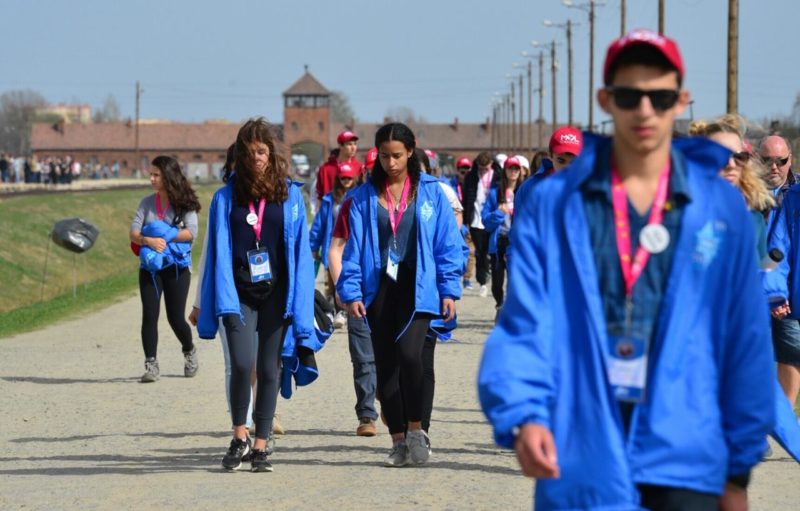Canadians will not participate in the March of The Living, an annual trip that takes high school students to Poland and Israel this year, the third consecutive year that the program has been cancelled.
The war in Ukraine and the pressures it has placed on neighbouring Poland, which is housing tens of thousands of refugees, meant that cancelling Canadian delegations was the wisest decision, organizers said.
All of the North American youth delegations that were to go on the March have cancelled. Groups from Europe, however, are still participating in the international program.
“It was a devastating decision to make, but we stand behind those who need the support in Poland more than we do at this time,” said Tara Kaufman, director of GenMtl and Jewish identity programs.
Montreal was set to send a busload of 47 participants, and Toronto was sending a similar size group. The trip was to have left Canada April 24.
In 2019, the last year the trip ran, 505 students from across Canada participated in the program.
Typically, the program takes high school students, accompanied by adult chaperones and Holocaust survivors, to concentration camps in Poland, where they observe Yom ha-Shoah. They then travel to Israel to participate in Yom ha-Zikaron and Yom ha-Atzmaut, to remember Israel’s fallen soldiers and celebrate the country’s independence day.
The two-week trip was cancelled in 2020 and 2021, due to concerns about COVID. By December 2021, however, Canadian organizers felt confident to schedule the trip for this spring.
The decision to cancel didn’t come as a surprise to parents, who were worried about the political crisis, said Witnee Karp, March of the Living and Israel engagement manager in Toronto.
“The conditions in the region were so fluid and there were security concerns,” Karp said. “Poland’s infrastructure and resources were rightly being dedicated to the refugee crisis, there were just obstacles and so many considerations when it came to travel and accommodations and programming, we felt it was the right decision for our contingent.”
For the last two years, Toronto has offered a local program for students to meet with Holocaust survivors and volunteer in the community, Karp said.
The cornerstone of the March of the Living, the three-km march from Auschwitz to Birkenau, which usually had thousands of people from around the world participating, will be virtual, so North American students can participate.
On the March, students design plaques that remember family members who died in the Holocaust or express their hopes for the future, and that are placed beside the railway tracks leading to Birkenau. This year, students are designing virtual plaques that will be projected onto the gates of Auschwitz on Yom ha-Shoah, said Eli Rubenstein, national director of March of the Living Canada for many years who is currently on medical leave.
Even though virtual and local programs have been developed, the cancellation of the March in Canada for a third consecutive year is a blow to Holocaust education, he said.
“It’s been hard because that transmission of memory from survivor to student is such a central part of the March.”
It’s possible that survivors who were imprisoned in concentration camps and are now in their 90s will be unable to participate in future marches, he said. “It will be hard to have someone like Nate Leipciger or Max Eisen standing in Auschwitz and saying ‘this is where it happened’,” Rubinstein said, referring to Toronto survivors who have been very active on March of the Living trips.
Slightly younger survivors, who were hidden children during the Holocaust, will still be able to accompany trips and tell students of their experiences, he hopes.
Meanwhile, the survivors he speaks with say they are heartbroken and can’t sleep as they watch the images from Ukraine of families fleeing, the buildings destroyed by bombs and the suffering of innocent people. “One of the things we try to teach the students on the March is the importance of democracy and freedom and human rights. This is such a stark example of the opposite.”







